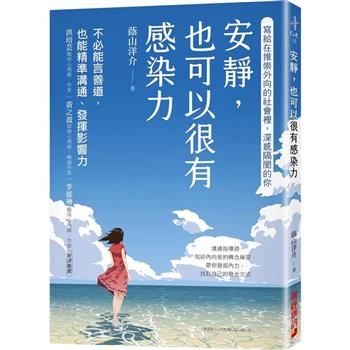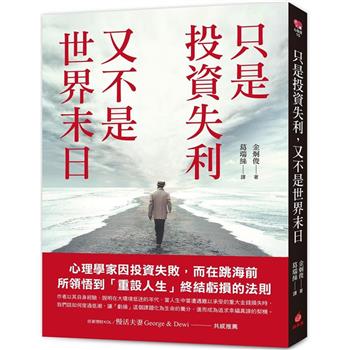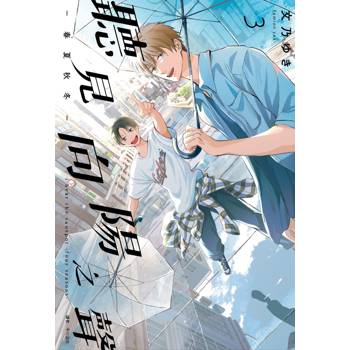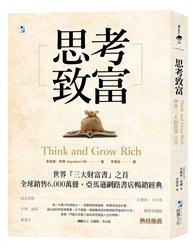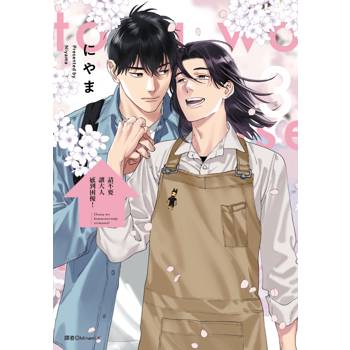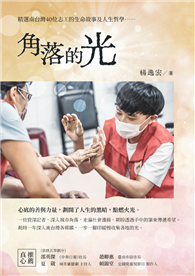章節試閱
To Buy a God
The madwoman next door is screaming again. Only after two in the morning does she come out onto her balcony and screech her tirade to the stars hidden above the too-brightly lit city night and unleash her vituperative spittle on the restlessly sleeping world below. I cannot understand a word she says, but her anger ticks off something inside me, and I find myself strangely resentful that she can release her rage and I cannot. She lives alone with her little grandson and nothing will quiet her except when someone shouts, “The police are coming!” and then she scurries inside like a startled cockroach. But this cannot be done too often, since they never do come and even madness cannot be fooled indefinitely.
Do her words make any sense? Can anyone understand them? Does she know what she says, or do they just pour from her mouth, excreta of a disordered mind? When she screams, I can neither sleep nor work. I cannot ignore her, nor can I bear to stop her with the threat of the police. With a shock, I realize she is somehow echoing the mumbo jumbo I have put on the page in the hope that the words will realign themselves to form meaning that I do not have the power to give them. Which is more mad—my mute scribbles or her muddled broadcast? I match her word for word, stroke for breath. I need professional help.
I go to Wanhua, a run-down part of town dedicated to the shoddy props of virility—cheap brothels, snake blood, dog and turtle meat. In the center, squats the Lungshan Temple, perpetually smoking with incense. A ravaged beauty, she strives for the saintliness that should come with age but does not quite succeed as though the gods encased within her dark hollows do not believe in themselves anymore. I am looking for my own god, not one of those worn out by hundreds of years of public service, but a new one, fresh from the carver’s hands. Others may consider such a novice as less potent, but I want one with an unexhausted store from whom I can draw my own selfish expectations. I have no qualms about praying to an idol which I see as a kind of spiritual piggy bank that I can fill with worship, respect, and offerings and then break open to reap the accrued blessings. I am not going to pray to save my soul only for help to finish my book.
A greedy old madam, the temple is surrounded by devotees; she has nothing against moneylenders and vendors. I begin to survey the workshops gathered around her skirts where one can buy all kinds of religious artifacts—porcelain deities, bronze gongs, brass incense urns, red candles, gold embroidered hangings for altars and weddings, and even the evil-looking sticks studded with spikes for those who want to exorcise the demons of the flesh.
I go toward a shop where the owner is sitting on a stool out in front, chewing betel and chiseling a block of wood held between his knees. He scarcely glances up when I enter—just the kind of salesman I like. I gaze at the shelves of standing and seated deities and feel as if I am being inspected in turn. And for that reason, I am drawn to the ones still in the back room unfinished and eyeless. After the wood is carved, it is coated in plaster that is then sculpted in greater detail and finally painted. The unfinished wood sculptures remind me of the marble Greek statues, stark, broken and evocative, allowing one to forget that they too were once as gaudily painted as these assembly line models.
But since I am not shopping for aesthetic reasons, I leave the unfinished ones and turn again to those whose power is complete. The spirit of logos has been eluding me—or perhaps warded off by the madwoman’s ravings. I need a god of literature, some manly muse, some snake juice for my right hemisphere. I go back out and tell the owner, “I need a god to help me write.” He gets up and pulls a statue off the shelf identical in its banal expression to the ones sitting on either side. He pats the placid rosy-cheeked figure on the head. “Wen Chang, God of Literature. Helps you pass written exams.”
A god of exams I do not want! I glare at the figure with hostility as I believe people are examined to death in the school system; he’s the god that kills the spirit of youth. He does not blink at the force of my animus. In his right hand he holds a scepter—not a pen or scroll. No, he won’t do! He sits too upright, his feet planted too firmly on the ground. A Confucian god, a writer of didactic histories and moral eight-legged essays, the guide through the bureaucratic morass of the civil service exams. No, I need the companion of drunken poets, tellers of ghost stories, and secret scribblers of erotic romances. I swear I see Wen Chang raise his eyebrows.
“How much?”
“Two thousand, five hundred.”
A standard price. Back you go on the shelf, my dear pedant. I then study the three statues of K’uei Hsing, the other god of literature, who is also the patron of barbers and prostitutes. Standing with one foot upraised, he has a bright red face and two curled horns sprouting from the top of his head. When he was human, he received the highest score on the civil service exam, but when the emperor saw his ugly face he could not bring himself to award the scholar the golden flower prize. Mortified, K’uei Hsing jumped into the sea where he was rescued by a tortoise, and then vaulted into Heaven as the northern most star of the Big Dipper. Definitely a more intriguing personality than Wen Chang, his neighbor in the constellation, but I cannot say I like his face any more than the emperor did.
I go on to scrutinize the blue-haired Buddhas, and the tranquil goddess of mercy, Kuan Yin, reproduced by the dozen in gracefully draped gowns. No, no… I need a kick-ass god! And just as I turn to leave, I see the small figure I want. He is skipping or running—one foot off the ground—his whole body alive in exuberant motion, his gown flung out behind him as though trying to keep up. In one hand, he holds a hulu, a double-bulbed gourd used as a wine flask and in the other, a plume, potentially a goose quill pen, but actually a feathered fan. His chin is speckled with beard stubble and a few curly hairs on his chest peep out from under his ragged robe which is golden and covered in blue patches. His trousers and boots are painted with elaborate detail to show both their richness and worn-out condition. His crazy face grins at me and I know that this is the god that can march right through the madwoman’s gibberish and leave behind a luminous trail of intelligibility. I can already see the wall between us crumbling under his unlaced boot.
I take him in hand and show the owner. He frowns and snatches him away.
“How much?” I demand.
“Ten thousand, fifteen thousand,” he mutters, putting the god back on the shelf.
“Now, wait a minute, why so much? He’s a poor god. Look at the patches on his clothes.”
“No,” he argues, “more difficult to carve. A good carving, better than the others.”
It’s true, the detailing is superb for a modern statue, but that is not the reason the carver will not sell. He moves into the back of the shop, still muttering to himself. I tail him.
“Who is he?”
“Ji Gong.”
“What’s he god of?”
He shrugs his shoulders. “How to explain?”
“Try.”
He taps his temple. “He’s the mad monk.”
Good! One of those mad recluses, poet hermits like Han Shan who roamed the mountainside chanting to the wind and rain. I could use a little bit of ecstasy. “Let me have him,” I say.
“No.”
“Why not?”
He mumbles.
“What?” I shout.
“Black magic,” he shouts back, disappearing into the living quarters in the rear where I cannot follow.
Ah. Is he afraid I’ll be hurt, or grow too powerful? Or perhaps he senses that any power given into the hands of the ignorant is dangerous. I hesitate, and then salute Ji Gong on my way out, promising to pray to him anyway.
Tonight the madwoman next door is silent, and this unsettles me. I cannot concentrate because I keep expecting her to come out any minute and begin ranting. I have consumed half a bottle of Cointreau and can barely read my own writing. The night is warm, but a wind picks up. I go out on my balcony and look up at the sky. To my surprise, a few clouds part to reveal the Big Dipper. “So, Wen Chang and K’uei Hsing, you are still hovering above me like official censors. Be gone!” I shout. They do not move. I begin cursing them. I hop back and forth from one foot to the other, singing at the top of my lungs, half joyfully, half in desperation. “Ji Gong, Ji Gong, give me a draught from your enchanted hulu, let me sweep the skies with your fan!”
To Buy a God
The madwoman next door is screaming again. Only after two in the morning does she come out onto her balcony and screech her tirade to the stars hidden above the too-brightly lit city night and unleash her vituperative spittle on the restlessly sleeping world below. I cannot understand a word she says, but her anger ticks off something inside me, and I find myself strangely resentful that she can release her rage and I cannot. She lives alone with her little grandson and nothing wil...
作者序
Preface to the New Edition
The Bound Feet stories were written about Taiwan during its period of transition in the 1980s, when it changed from being a predominantly agricultural country to an industrial one, from being governed by a military dictatorship to becoming the first democratic Chinese society. Many Taiwanese had been educated by the Japanese and continued to have close ties with Japan; others were going to the United States for higher education and returned with American notions of political progress. With the restoration of civil liberties, a growing sense of nationalism took hold among local people who were reclaiming their language and culture made from unique historical circumstances. At the same time, others were nostalgic for a disappearing way of life as the population grew, prosperity spread through a broadening middleclass, and property became expensive. The Bound Feet stories express these changes through the shifting relations between parents and children, women and men, locals and foreigners, and in the coming of age of the generation born in Taiwan of both Chinese and Taiwanese parents. In the text, the Wade-Giles Romanization system is often used to reflect the way in which Chinese words were rendered for non-Chinese speakers in Taiwan at that time.
Catherine Dai
Taipei, 2019
Preface to the New Edition
The Bound Feet stories were written about Taiwan during its period of transition in the 1980s, when it changed from being a predominantly agricultural country to an industrial one, from being governed by a military dictatorship to becoming the first democratic Chinese society. Many Taiwanese had been educated by the Japanese and continued to have close ties with Japan; others were going to the United States for higher education and returned with American notions of po...
目錄
Preface to the New Edition
To Buy a God
The Wisteria Groom
“While My Hair Was Still Cut Straight Across My Forehead”
Disco Night
Interview with a Chrysanthemum
Portrait of a Shrew
The Devil’s Advocate
Why the Taiwanese Shouldn’t Have Dogs, or the Bread Bastard
The Princeling of Chow
God Bought
The Photographer’s Daughter
The Smile of Buddha
The Noodle Stand Dance
Tea
Three Pineapples and a Wall Tiger
The Fox Fairy at the F.R.A
On the Margin
Auf Wiedersehen
The Taiwanese Eve
God Unbound
Preface to the New Edition
To Buy a God
The Wisteria Groom
“While My Hair Was Still Cut Straight Across My Forehead”
Disco Night
Interview with a Chrysanthemum
Portrait of a Shrew
The Devil’s Advocate
Why the Taiwanese Shouldn’t Have Dogs, or the Bread Bastard
The Princeling of Chow
God Bought
The Photographer’s Daughter
The Smile of Buddha
The Noodle Stand Dance
Tea
Three Pineapples and a Wall Tiger
The Fox Fairy at the F.R.A
On the Margin
Auf Wiedersehen
The Taiwanese E...
